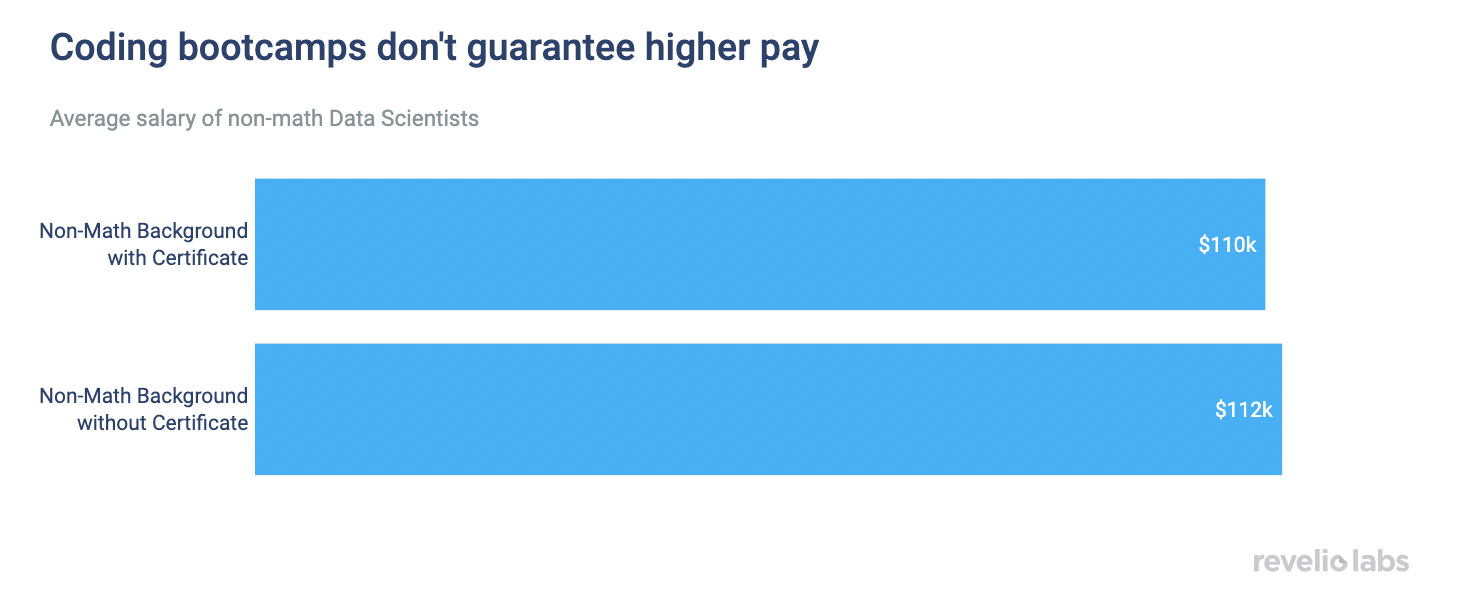Do You Really Need That Math Degree to Be a Data Scientist?
If you can pass the coding interview, the job is yours
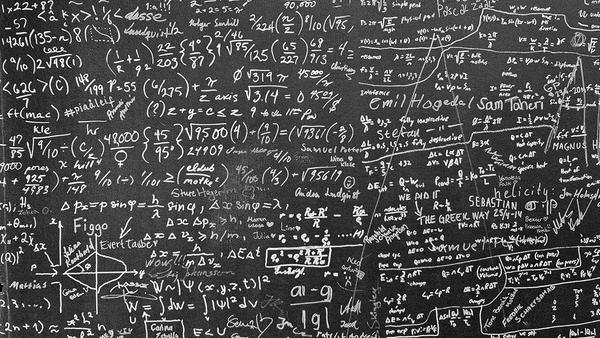
16.5% of Data Scientists do not have a background in a math-focused major like Statistics or Physics.
Data Scientists with non-math majors earn only slightly less than those with math majors.
Online courses and bootcamps are a popular way of getting into Data Science but are no guarantee for success or higher salaries.
Few jobs have received as much hype and attention as Data Science in the past decade. With the astronomical rise of tech has come an abundance of data and an increasing popularity of data-based decision making. Even non-tech companies in retail and manufacturing now employ dedicated Data Scientists to effectively utilize the large data they collect. Besides paying well and giving access to working at some of the most coveted employers of our day, it is an exciting field that keeps evolving rapidly and opens up many career opportunities.
Data Science is accessible through different career pathways and to people of various backgrounds. Despite its analytic nature, a lot of Data Scientists make it into the profession without a math-focused university degree. Using workforce insights from our global HR database, we observe that 16.5% of currently employed Data Scientists do not have tertiary education in a math-focused major, such as Mathematics, Statistics, Computer Science, Economics or Physics.

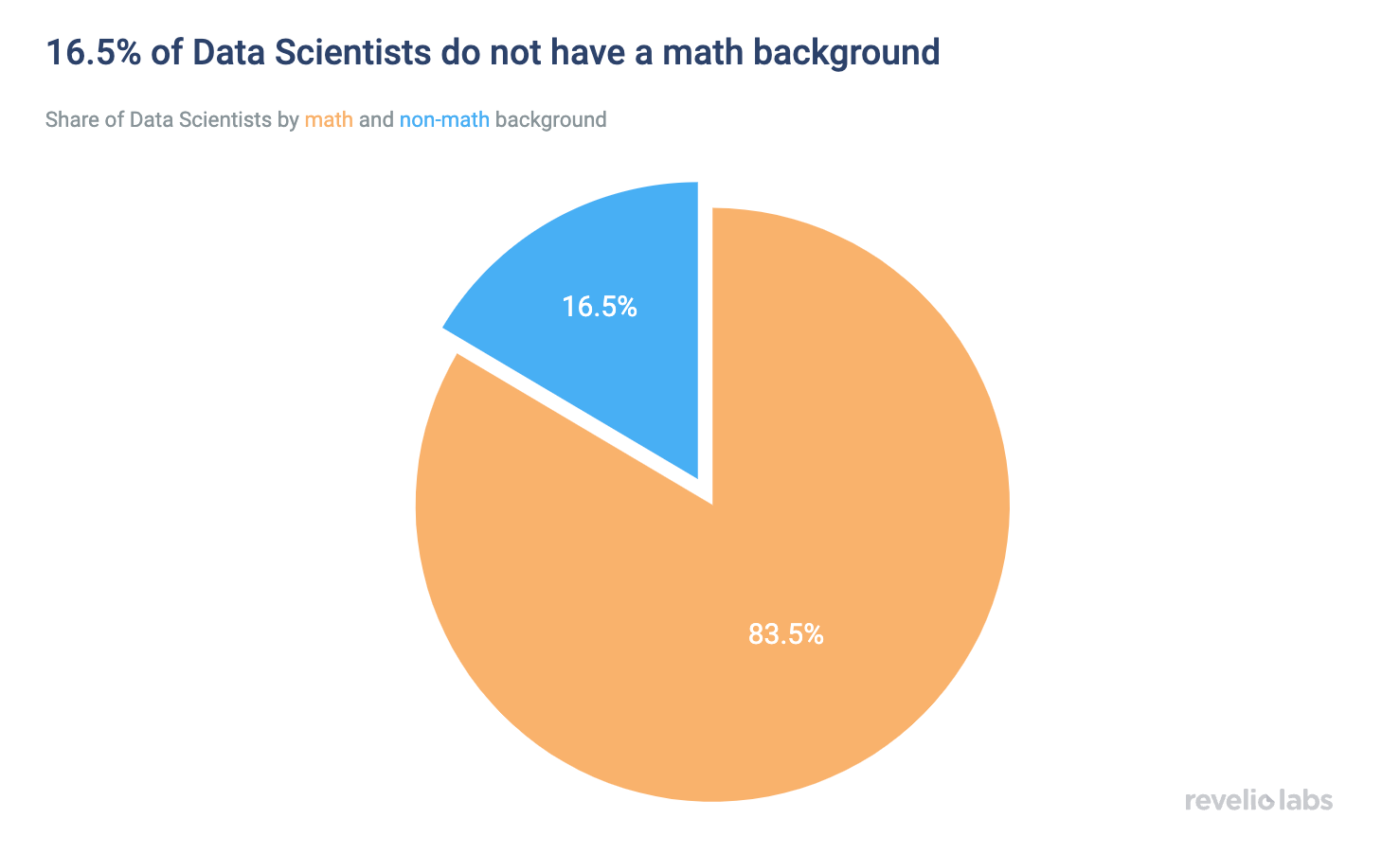
The most common undergraduate majors among Data Scientists in general are unsurprisingly Computer Science, Engineering, and Mathematics. The most common majors among people without a math background are Business, Design, and Psychology. One can see how each of these majors coupled with Data Science can provide a powerful synergy of skills and ways of thinking.

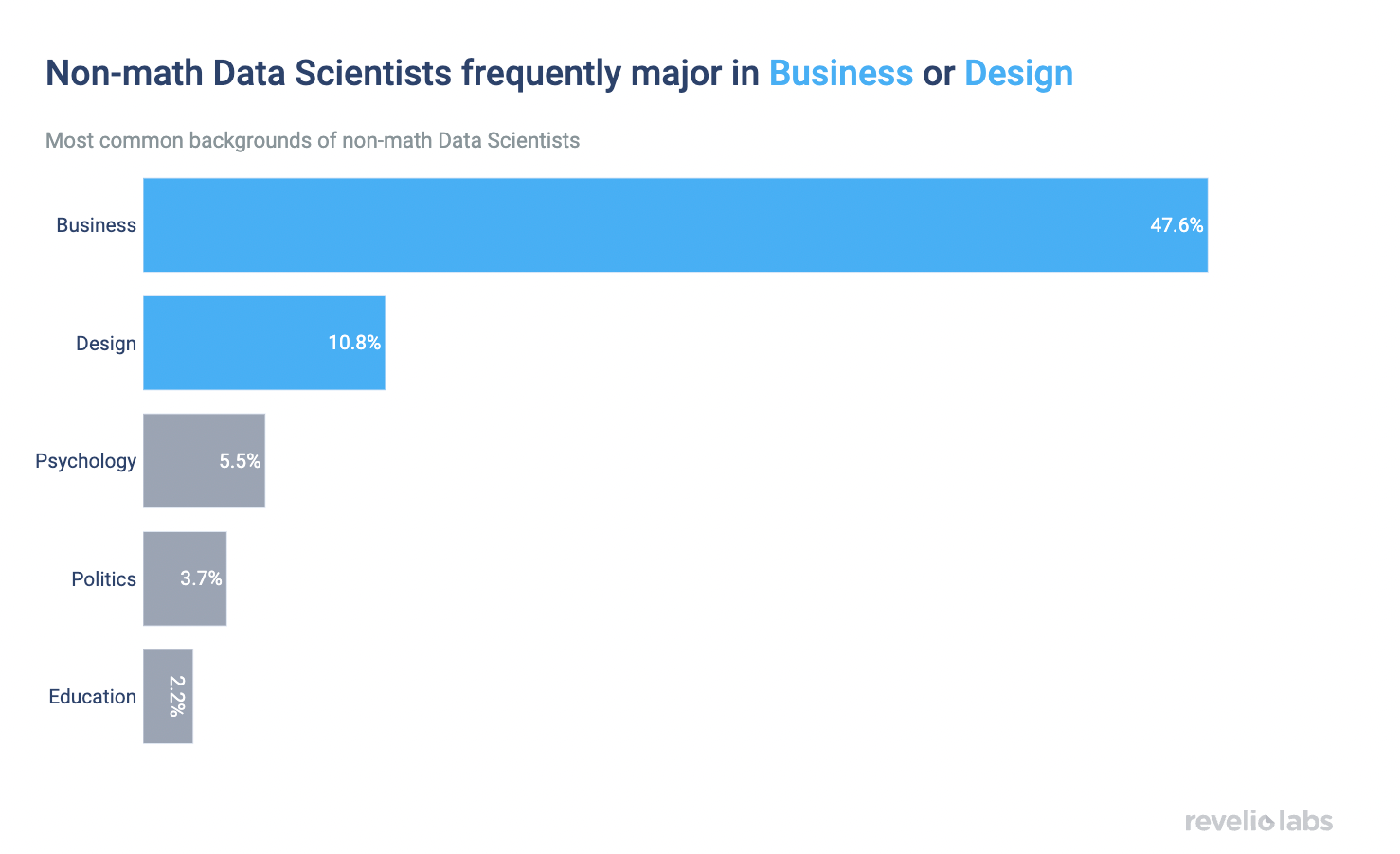
Sign up for our newsletter
Our weekly data driven newsletter provides in-depth analysis of workforce trends and news, delivered straight to your inbox!
Does having a math background matter for how much you can make as a Data Scientist? The answer seems to be: not really. In our HR database, we see that Data Scientists with a math background earn slightly more, but the difference is negligible. On average, the profession does not penalize not having a math-focused major as long as the candidate can get the job done.

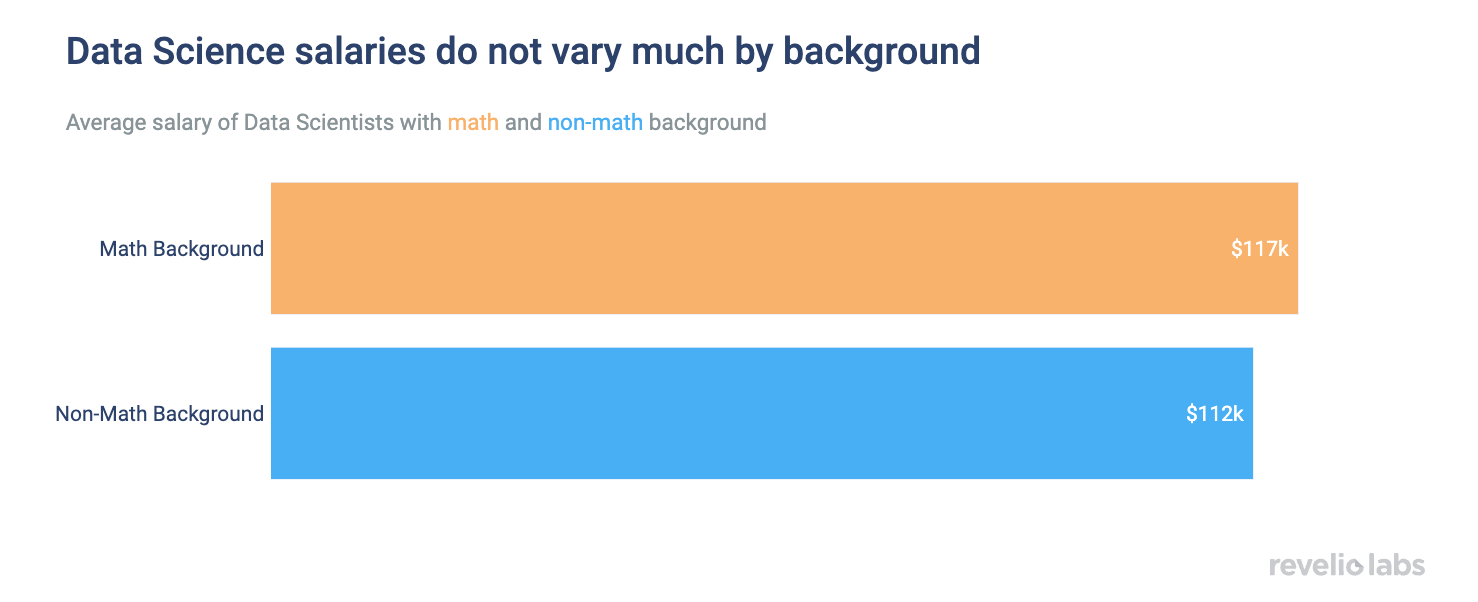
How do people become data scientists without a math degree? 21% of Data Scientists without a math background report having a certificate from a course or bootcamp in Data Science from providers such as Coursera or Udemy. The most common topics of bootcamps are general programming for Data Science, Machine Learning, and courses related to ETL and Data Engineering.

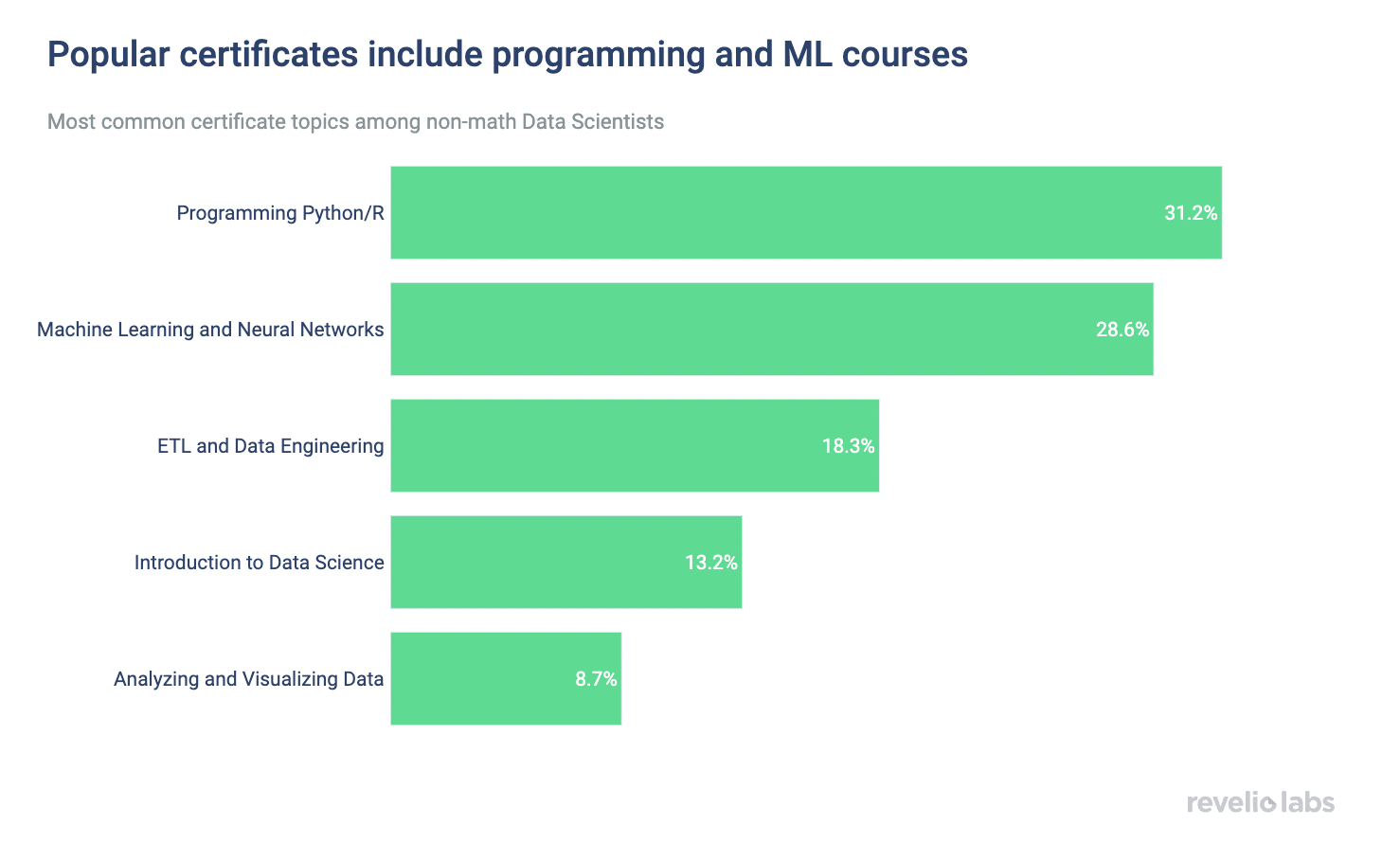
Does having a Data Science certificate help Data Scientists without a math background in their careers? Again, our workforce insights show that there is very little difference. Those who do not report a bootcamp certificate make slightly higher salaries, but the difference is insignificant. This is not to say that bootcamps don’t work, but reporting them on one’s profile doesn’t necessarily help or may be a negative signal. The only currency that counts in Data Science, is being able to get past the coding tests and getting the job done.

